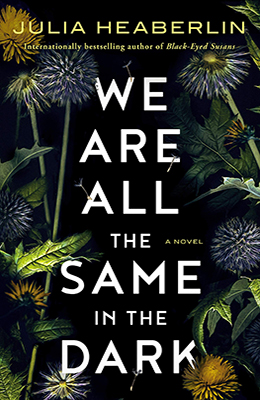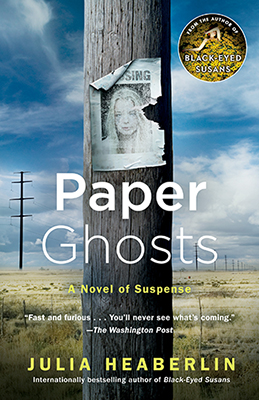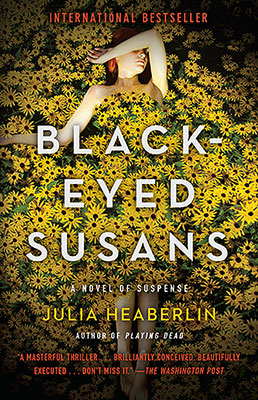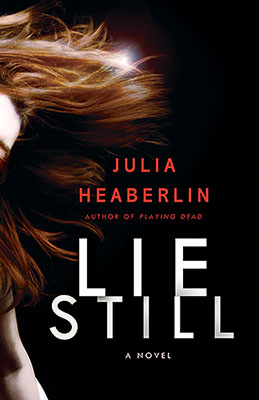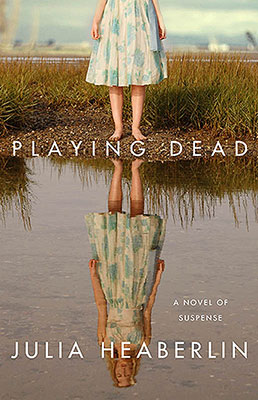

Book Clubs
* Readers, beware of possible spoilers *
We Are All the Same in the Dark:
11 Questions
- “I want to tell her, We are all the same in the dark.” Why do you think Julia Heaberlin chose this as the title for her novel? How does this sentiment relate to the characters and how they are perceived? How does it relate to the topics of vulnerability and overcoming adversity? What does its sentiment mean to you?
- In the book, Wyatt and Odette are haunted—literally and figuratively—and burdened by the past. Is there any time or place in your own life where you felt the weight of history? Do you believe in ghosts, or have you ever had a paranormal experience? If so, what is your “theory” of ghosts (what they’re like, how they reach us, and what purpose they serve)?
- How does small town gossip and legend work against Odette? How do the stories we tell, and the stories we tell ourselves, shape our identity and expectations? Have you ever had to challenge any personal narratives or myths?
- Thwarted potential is a theme in the novel—from Trumanell’s death to Wyatt losing his mind to Odette and Angel losing physical parts of themselves. In our culture, we love prodigies, ingenues, wunderkinds, and rising stars. Why is potential so fascinating and prized in our culture? Is it overvalued?
Download the Book Kit for the rest of the questions and to read an introduction by Julia
Paper Ghosts:
10 Questions
- The truth about Carl and the protagonist behind the wheel unfolds with every mile. Did you find yourself rooting for one or the other or both?
- In the age of Facebook, Instagram, and the smartphone camera, how much do you think photos both lie and tell the truth about us? Are photographs becoming more important than ever in documenting our culture or are they a facade?
- Do you have a favorite photograph—from a book, a newspaper, or your own photo album—that is an image stamped in your mind forever? What is the quality that moves a photograph from just a picture to something artistic and timeless?
- Did you personally relate to any of the issues raised about dementia?
- Do you have a different opinion about the explosive standoff between the Branch Davidians and the government after reading this book?
- Julia likes to inject humor into her novels despite their grim subject matter. She likes the comic relief—even for herself as she writes—and thinks that it reflects real life. Do you agree?
- Have you seen or heard of Marfa’s Mystery Lights and do you believe they are something otherworldly?
- Have you visited any of the other places in Paper Ghosts’ creepy Texas road trip? If not, after reading this book, where would you want to visit?
- Do you agree with the quote from Dostoyevsky: “Bad people are to be found everywhere, but even among the worst there may be something good?” If so, who are some real-life examples, dead or alive?
- Along the same lines: How did you feel about Carl in the end? Are you still deciding?
Black-Eyed Susans:
10 Questions
- Did you or someone you know experience violent psychic trauma as a child? Based on that, or survivors you see on TV, do you believe there is such a thing as full recovery? Do you believe children are more resilient than adults?
- Was the doctor helpful to Tessie in their sessions before the trial? Do you believe in repressed memory and the techniques to unlock them?
- How do you relate to Tessa’s relationship with her teen-age daughter?
- Tessa was conflicted about the death penalty. Are you for or against it? Did this book change your mind a little one way or the other? Have you ever made a stand beyond stating your opinion? Does it irritate or inform you when friends use Facebook as their forum? If you live in Texas, were you surprised about the matter-of-fact way an execution plays out in the middle of Huntsville?
- What was your favorite “Southern moment” in Black-Eyed Susans?
- How do you think forensic scientists and death penalty lawyers emotionally survive a career where death is a constant? Could you do it?
- Was Tessie always in the right when it came to her relationship with Lydia?
- Was there more darkness or light in Lydia? Tessa? Do you think most human beings, in a tough situation, will do what serves them, or what is really right?
- What do you think of the idea laid out in this book—that voices in your head, especially of someone you love who has died, can be more productive than destructive?
- When do you think a person’s true nature, and the nature of a friendship, is mostly likely to be revealed?
Lie Still:
10 Questions
- Do you think this novel was a realistic portrayal of rich, Southern women or more satire?
- Did you grow to like the eccentric characters more or less as you turned the pages?
- Emily is still haunted by a date rape in college—do you think she should have been able to let it go years earlier?
- Do you believe date rape is more or less devastating than stranger rape? That date rape is still an issue on college campuses?
- Many women have regrettable early sexual encounters, where they weren’t raped but feel they were forced to do something they didn’t want to: Is this a normal part of growing up? Should women talk about it more?
- Emily keeps some big secrets from her husband, Mike: What did you like and not like about the relationship between the two of them?
- There are funny moments in Lie Still and yet some very dark themes. Do the lighter moments seem in keeping with the book?
- Do you think Caroline was more sinned against than sinning?
- What is the craziest diet you’ve ever been on?
- Do you think that Emily will ever meet the girl she draws in the painting?
Playing Dead:
10 Questions
Readers, beware of possible spoilers
- Was Tommie’s mother morally right to keep such devastating secrets from her daughter?
- Do you think you know the “whole” of your mother or are there parts of herself that she hides away?
- Tommie states that “it is a cancerous myth that children are resilient” when it comes to tragic childhoods. Do you agree?
- Do you sympathize with Jack? Do you think he is a destructive figure or someone to be pitied?
- In your experience, what is the single most important thing that adults can do to help damaged children move forward in life?
- Women are one of the fastest growing markets for handguns. Did this book make you feel more or less comfortable about carrying a gun?
- Do you believe in animals, like horses, as healers?
- Anthony Marchetti is a complicated man with complicated motives. Do you think he was really trying to redeem himself?
- How did this book change your perception of Texas or Texans (or did it)?
- Tommie divides the world into two kinds of people: those who will instinctively risk their own lives to save a stranger’s and those who won’t. Which are you?
